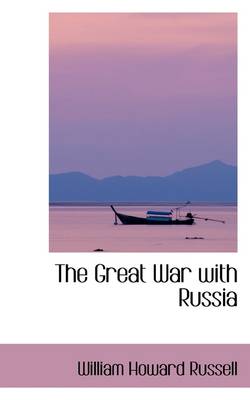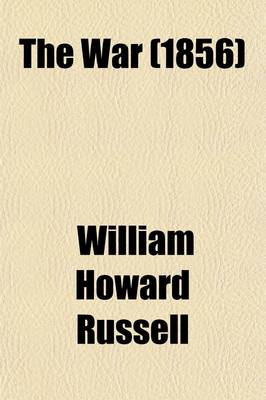Cambridge Library Collection - Naval and Military History
3 total works
The journalist William Howard Russell (1820-1907) is sometimes regarded as being the first war correspondent, and his reports from the conflict in the Crimea are also credited with being a cause of reforms in the British military system. This account of his time there, first published in 1858 and expanded in this 1895 edition, explains how Russell was sent by The Times of London in 1854 to join British troops stationed in Malta. He spent the next two years witnessing some of the key moments of the war, including the battle of Balaclava and the ill-fated Charge of the Light Brigade. His newspaper reports of the fighting and of the living conditions for the troops were widely read and very influential. In this retrospective work, Russell gives a more personal narrative of his experiences, making this an important account of one the most brutal wars of the nineteenth century.
The War. from the Death of Lord Raglan to the Evacuation of the Crimea
by Sir William Howard Russell
Published 22 February 2010
William Howard Russell (1820-1907) is today credited with having shaped the image and role of the modern war correspondent. His dispatches for The Times during the Crimean War were so influential that they led to military reforms and the fall of the Aberdeen Government. Moreover, his unflinching accounts of the appalling and insanitary conditions endured by ill-provisioned troops helped inspire the work of Florence Nightingale. He was not afraid to highlight poor leadership and planning, and was quick to praise the heroism of the 'common' soldier. Wearing military-style clothes, he obtained his information through his easy relationships with junior officers, helped by his fondness for brandy and cigars. This volume, published in 1856, includes his last Crimean dispatches, concluding with poignant descriptions of visits by the soldiers to the battlefields to erect memorials to their fallen comrades.
The War, from the Landing at Gallipoli to the Death of Lord Raglan
by Sir William Howard Russell
Published 1 January 2012
The journalist William Howard Russell (1820-1907) is sometimes regarded as being the first war correspondent, and his reports from the conflict in the Crimea are also credited with being a cause of reforms made to the British military system. Published in 1855, during the late stages of the conflict, this is a collection of eye-witness reports originally printed in The Times newspaper, including the famous account, from 25 October 1854, of the Charge of the Light Brigade during the Battle of Balaclava, and the other engagement on the same day which gave rise to the phrase 'the thin red line'. Russell's accounts are unflinching in their dramatic descriptions of the appalling and insanitary conditions endured by the ill-provisioned troops, and his criticism of those in command, particularly Lord Raglan, had a dramatic impact on the British people and government. Reading these letters today, it is easy to understand why.


